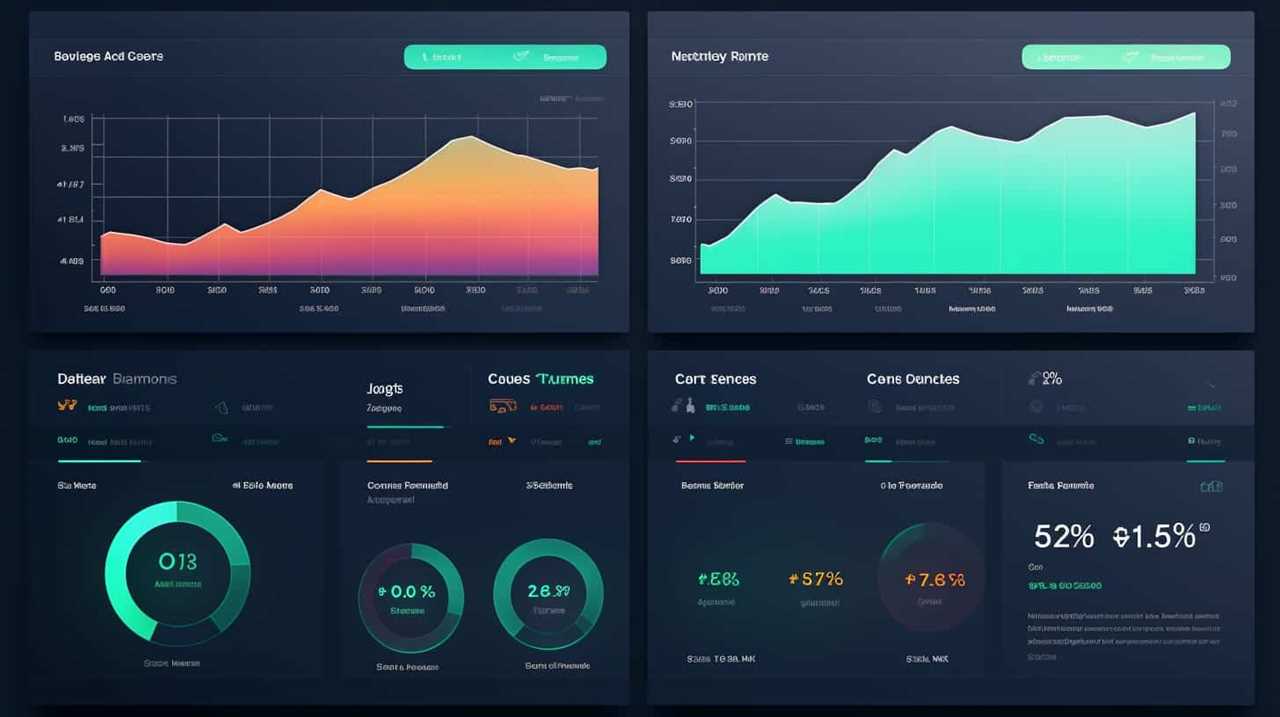Welcome to our guide on technical SEO! If your goal is to learn the ins and outs of optimizing your website for search engines in an effective manner, you’ve arrived at the right location.
We’ll delve into the definition, key elements, and importance of technical SEO, as well as the benefits it can bring to your online presence.
Get ready to uncover the best practices and strategies that will help you achieve mastery in the ever-evolving world of technical SEO.
Let’s dive in!

Key Takeaways
- Technical SEO involves optimizing a website’s technical elements for better visibility and performance on search engine results pages.
- Key techniques include organizing the site’s pages and URLs in a logical and navigable manner.
- Implementing proper HTML markup, like meta tags and schema markup, helps search engines understand the content and context of the website.
- Ensuring fast loading times, mobile responsiveness, and accessibility for search engine bots are crucial for technical SEO.
Definition of Technical SEO
Technical SEO is a practice that involves optimizing a website’s technical elements to improve its visibility and performance on search engine results pages.
When it comes to technical SEO techniques and strategies, there are several key factors to consider.
One important technique is ensuring that the website has a clean and crawlable structure, which means organizing the site’s pages and URLs in a logical and easily navigable manner.
Another technique is optimizing the website’s load speed, as slow loading times can negatively impact both user experience and search engine rankings.

Additionally, implementing proper HTML markup, such as meta tags and schema markup, can help search engines better understand the content and context of the website.
These are just a few examples of the technical SEO strategies that can be employed to improve a website’s visibility and performance in search engine results.
Key Elements of Technical SEO
Optimizing a website’s technical elements involves focusing on key elements that contribute to its visibility and performance on search engine results pages. When it comes to technical SEO, it’s important to understand the difference between technical SEO and on-page SEO.
While on-page SEO focuses on optimizing the content and structure of individual web pages, technical SEO deals with the technical aspects of a website that affect its overall performance and indexing by search engines.

Some common technical SEO issues that need to be addressed include website speed, mobile-friendliness, crawlability, and site architecture.
Ensuring that your website loads quickly, is responsive on mobile devices, and is easily accessible for search engine bots are all crucial for a successful technical SEO strategy.
Importance of Technical SEO
As we delve further into the topic of technical SEO, it’s essential to understand the significance of addressing these key elements and resolving any technical issues for improved website visibility and rankings on search engine results pages.
Technical SEO and On-Page SEO are two distinct components of optimizing a website for search engines. While On-Page SEO focuses on optimizing individual web pages to rank higher, Technical SEO deals with the overall structure and functioning of a website. It involves optimizing website speed, mobile-friendliness, crawlability, and indexability.

By implementing Technical SEO best practices, website owners can ensure that search engines can easily crawl and index their site, leading to improved website performance and visibility.
Transitioning into the subsequent section about the benefits of implementing Technical SEO, let’s explore how these optimizations can positively impact a website’s rankings and user experience.
Benefits of Implementing Technical SEO
After addressing the key elements and resolving any technical issues, we can reap the benefits of implementing Technical SEO for improved website visibility and rankings on search engine results pages.
- Technical SEO vs. On page SEO:
Technical SEO focuses on optimizing the technical aspects of a website to improve its performance and crawlability by search engines. On page SEO, on the other hand, focuses on optimizing the content and structure of individual web pages. By implementing Technical SEO, we can ensure that our website is technically sound and optimized for search engines, leading to higher rankings and increased organic traffic. - Technical SEO for mobile optimization:
With the increasing use of mobile devices, it’s crucial to optimize our website for mobile users. Technical SEO helps us ensure that our website is mobile-friendly, with responsive design, fast loading times, and easy navigation on mobile devices. This improves the user experience and helps us capture the growing mobile audience. - Improved website performance:
Technical SEO optimizations such as reducing page load times, optimizing site structure, and fixing broken links can significantly improve website performance. A fast and well-performing website not only provides a better user experience but also helps search engines crawl and index our site more efficiently.
Implementing Technical SEO not only improves website visibility and rankings but also enhances the overall user experience and performance of our website. In the next section, we’ll discuss best practices for Technical SEO to ensure that our website is fully optimized for search engines.

Best Practices for Technical SEO
How can we effectively implement best practices for Technical SEO to optimize our website for search engines?
To ensure success, it’s crucial to employ the right Technical SEO strategies while avoiding common technical SEO mistakes.
First and foremost, conducting regular website audits is essential to identify any technical issues and fix them promptly. This includes checking for broken links, improving page load speed, and optimizing for mobile devices.
Additionally, optimizing website structure and navigation is crucial for search engine crawlers to understand and index content effectively. Implementing proper URL structure, using descriptive meta tags, and optimizing header tags are some key practices in this regard.

Lastly, creating an XML sitemap and submitting it to search engines ensures that all pages are indexed and easily discoverable.
Frequently Asked Questions
How Does Technical SEO Differ From Other Types of SEO?
When it comes to SEO, technical SEO is a distinct aspect that sets it apart from other types of SEO.
Compared to on-page SEO, which focuses on optimizing content and keywords, technical SEO deals with the technical aspects of a website that affect search engine rankings.
It includes tasks like improving site speed, fixing broken links, and optimizing site structure.

Technical SEO is crucial for achieving higher search engine rankings and ensuring a smooth user experience.
What Are Some Common Technical Issues That Can Affect a Website’s Seo?
When it comes to website SEO, there are a few common technical issues that can greatly impact your rankings.
One major concern is website crawlability, which refers to how easily search engine bots can access and navigate your site.
Another important factor is server response time, as slow loading pages can lead to higher bounce rates and decreased user satisfaction.

It’s crucial to address these issues to ensure optimal SEO performance and improve your website’s overall user experience.
Can Implementing Technical SEO Strategies Improve Website Loading Speed?
Implementing technical SEO strategies can greatly improve website loading speed and overall performance. By optimizing elements such as server response time, code efficiency, and image compression, websites can load faster and provide a better user experience.
This not only benefits the user but also positively impacts SEO rankings, as search engines prioritize fast-loading websites. Therefore, investing time and effort into technical SEO can lead to improved website performance and increased visibility in search engine results.
Is Technical SEO Only Important for Larger Websites, or Does It Apply to Smaller Ones as Well?
Technical SEO is important for both larger and smaller websites. It plays a crucial role in improving website loading speed and enhancing organic search rankings.

For e-commerce websites, technical SEO is particularly important as it directly impacts their visibility, user experience, and ultimately, their sales.
Small businesses can benefit greatly from implementing technical SEO strategies, as it helps them compete with larger competitors and increase their online presence.
How Can Technical SEO Help in Improving a Website’s Mobile-Friendliness and User Experience?
Improving a website’s mobile-friendliness and user experience is crucial. By implementing optimization techniques for mobile responsiveness, technical SEO plays a vital role. It ensures that the website is easily accessible and user-friendly on different devices.
Additionally, technical SEO has a significant impact on user engagement. It helps in reducing page load time, enhancing site speed, and providing a seamless browsing experience.

Conclusion
In conclusion, technical SEO plays a crucial role in optimizing websites for search engines and improving their overall performance.
Just like a well-maintained car engine ensures smooth and efficient driving, technical SEO ensures that a website functions seamlessly and ranks higher in search results.
By implementing best practices and staying updated with the latest trends, businesses can reap the benefits of increased visibility, organic traffic, and better user experience.
Don’t neglect the technical aspects of SEO; they’re the engine that powers your online success.











